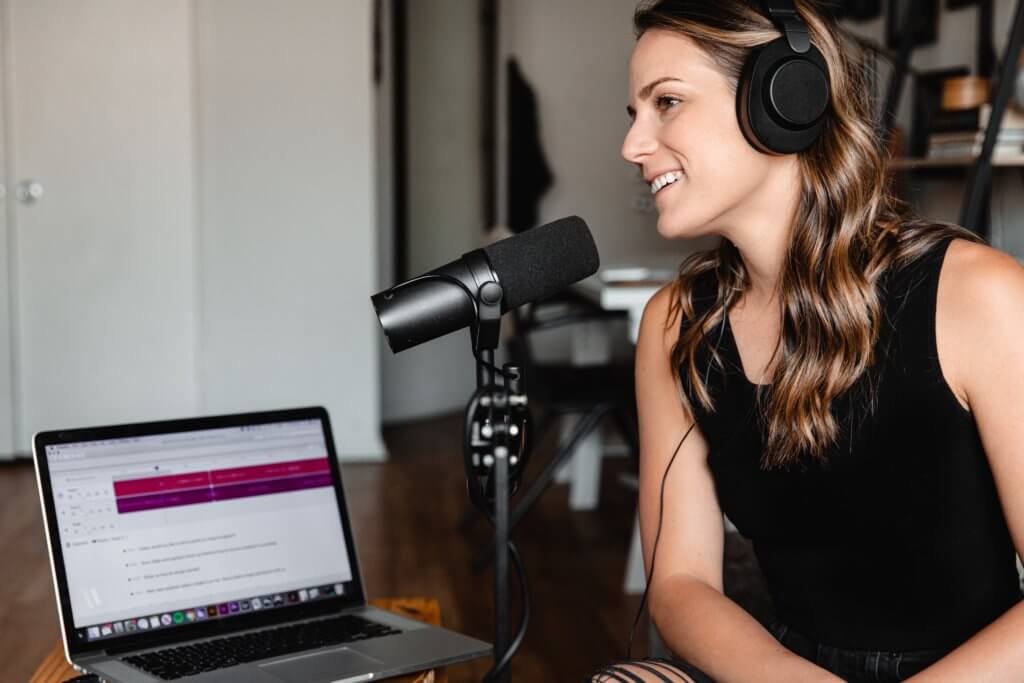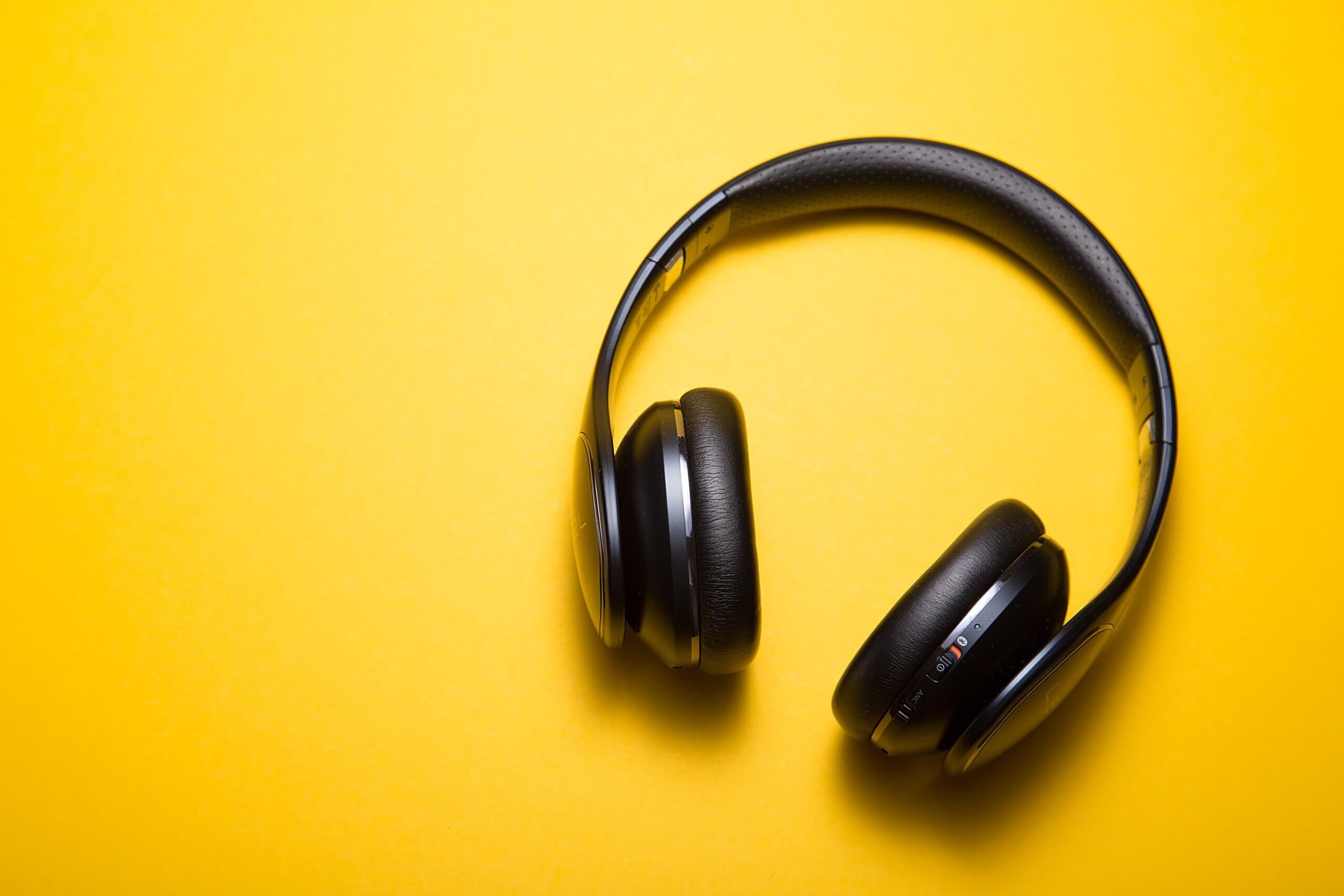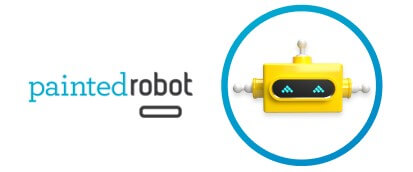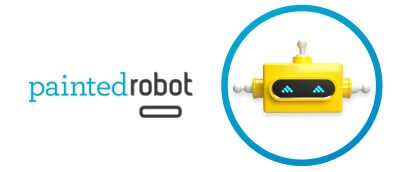What’s the Difference and Why Are They Great for Businesses?
What is a podcast and how do I go about hosting one? What’s the difference between a webinar and a podcast, and what are the benefits of each for my business? Webinars and podcasts have seen a sharp rise in popularity in recent years, with 61% of marketers saying they use webinars as part of their marketing strategy, and nearly 20% of marketers saying they are thinking of starting their own podcast. In this article, we’ll explain the difference between the two types of content, when you should host a podcast vs. a webinar, and the myriad advantages of incorporating this type of media into your digital content marketing strategy.
Let’s get started!
Back to Basics: What Is a Podcast?
“Podcasting” became an official term back in the early 2000s after it was mentioned in an article by The Guardian. Podcasts were developed alongside the revolutionary iPod, which first hit the shelves in 2001. In 2004, software developer Dave Winer, and former MTV VJ Adam Curry developed and coded a program which allowed radio broadcasts to be downloaded from the internet directly onto the iPod. And so was born…the famed podcast.
Podcasting is a content medium that involves audio broadcasting from the web. Listeners can tune in live on a variety of devices or listen to the podcast after the fact. Research shows that those who consume podcasts generally dedicate about 5 hours per week listening to them. There are many different styles of podcast one can host, including:

The interview. This entails the host interviewing one or more subjects on a particular topic. This is a popular type of podcast because it does not require much groundwork or research, and often relies on the energy and vivaciousness of the guest to carry it through. Interview-style podcasts do require you to have at least some connections and knowledge within the industry, as you will need to contact and convince expert speakers that there is value to appearing on the show.
The monologue. Monologue-style podcasts are best suited to hosts with confident and engaging voices, as they will be the sole presenter on the show. Monologues generally require more research than other types of podcasts – many of these podcasters opt for a full, pre-written script for each episode.
Conversational podcasts. Conversational podcasts involve multiple hosts, and take on a more informal, casual style. Podcasts of this sort are often most successful when there is great dynamic or energy between speakers. Hosts might take on specific roles, like narrating, providing commentary, or contributing anecdotes.
The panel. This podcast type is exactly what is sounds like: an audio panel wherein one host interviews a handful of new guests in each episode. Panels are advantageous because they tackle a new topic for each episode, and bring in lots of information and expertise. Compared to other types of webinars, panels tend to require more research and planning.
Non-fictional storytelling. This is a major category that has seen a significant rise in recent years with programs like S-town, Serial, and This American Life. These are podcasts about real people and real events, and often include interviews, live clips, and soundbites. One or more stories might be told throughout an episode, or one big story might be told across an entire series.
Fictional storytelling. When it comes to podcasting, there is always room for a little fantasy and imagination. Fictional storytelling is a popular form of podcasting, particularly for families with young children, or those who prefer to listen rather than read traditional books.
What Are Some of the Benefits of Hosting a Podcast for My Business?
There is a massive demand for audio content in industries across the globe. As a business, hosting a podcast is a great way to build connections with the community, and get your brand out in the world. Here are just a handful of the many benefits associated with hosting a podcast:
Podcasts are SO consumable. Podcasts are portable, and can be listened to on a multitude of handheld devices. Listeners can stream the podcast as they walk, run, eat, cook, and work, or download the podcast and watch it later. With services like Apple Podcasts, listeners have the option to “subscribe” to podcasts they enjoy, which pushes notifications each time a new episode or series is posted.
Initiation costs are low. All you need to host a podcast is a quiet room, a microphone of reasonable quality, and audio editing software. As your podcast becomes more successful, you should probably consider investing in actual microphones and recording devices (not just the pre-existing apps on your laptop). But you don’t need to worry about that for a while.

Podcasts helps build the brand. There is no better way to show an audience a company’s personality than by hosting a podcast. There are so many ways a podcast can be made unique – from the cover art to the script to the guests invited on the show. As a podcast gains popularity, more and more new people will begin to recognize the brand.
Podcasts have a high engagement rate. A recent study found that out of 300,000 podcast listeners, 63% bought something a host promoted on a show, while 71% said they would visit a sponsor’s website. That’s huge! Imagine what a conversion rate that high could do for your business.
Podcasts can act as a useful onboarding tool. Creating training content for new customers can be time consuming and expensive. By delivering this content in the form of a regular webinar series, you cut back majorly on costs, and deliver important information in a way that is fun and engaging.
When Should I Host a Podcast vs. a Webinar?
If you want to attract an international audience that goes beyond your industry niche
If you don’t want to host a session at a specific date or time
If you want the series to have more of a personal or quirky edge
If you want the series to take a non-traditional format, like fiction or monologue style
5 Fast Facts About Podcasts
On average, 45,000 podcast listeners have an average annual household income of more than $250,000 USD.
In 2019, there were 750,000 active podcasts.
The average podcast episode length is 43 minutes and 24 seconds.
Back in 2006, only 22% of the US population knew what podcasting was. In 2020, that number has jumped to 70% of internet users.
65% of podcasts are listened to on mobile devices.
Back to Basics: What Is a Webinar?
In simple terms, webinars are informative online seminars broadcast by an organization to a specific group of people. They are also referred to as “webcasts,” “online seminars,” or “online events.” Generally, webinars are recorded and shared live, and often include video and audio components. They can be accessed by multiple devices, including tablets, smartphones, laptops, and desktops. There are a handful of (mostly paid) platforms available for hosting webinars.
A few examples of popular webinar hosting software include:
GotoWebinar
Livestorm
BlueJeans
WebinarGeek
Demio
WebinarJam
SpotMe
What Are Some of the Benefits of Hosting Webinars for My Business?
Webinars are a fantastic way to strengthen relationships with customers and draw in new prospects. They are a powerful tool that should be a part of any marketer’s arsenal. Here are just a few of the many benefits of hosting webinars:
Webinars provide plenty of opportunities to engage with attendees. Most webinar platforms offer a variety of features to help marketers engage with attendees before, during, and after the live event. These features include automated reminder emails, live polls, surveys, and handouts during the webinar, attendee and registration analytics, and the ability for attendees to “raise their hand” at any point during the presentation. This ensures the webinar is not a one-way street; it’s an open discussion between you, your brand, and the audience.
Webinars can be repurposed for other channels. A webinar does not lose its value once it’s over. You can easily convert the script to a new blog series, social media post, or case study. It is recommended that you link back to the video file at the end of each additional publication to encourage more sign-ups for the recording.
Webinars generate qualified leads. A person who attends a webinar is as qualified a lead as they can get. They went to the effort of clicking the link, reading the webinar description, and filling out the form with their personal contact information. If a person then goes and attends the webinar, it means they could be seriously interested in your product or service.
Webinars position you as an industry leader. Inviting guests that are expert speakers in the industry helps position your company as an industry leader in its field. This is important, because it helps build trust with the audience, and gives you a competitive edge.
Webinars cost next to nothing. A big upside to hosting webinars is that they cost practically nothing to organize and host (except for a little time and patience, of course). There are several webinar platforms available online – most come at a small cost.
When Should I Host a Webinar vs. a Podcast?
If the subject matter involves teaching a practical or technical skill only possible with a demo/screen share
If you want to open the floor for a Q & A session at the end of the presentation
If you want to distribute documents or additional media during the webinar
If you wish to charge people for attending the event
If you want attendees to complete a certain Call to Action at the end of the webinar
5 Fast Facts About Webinars
The average company hosts 23 webinars per year.
The most successful webinar titles include lists (like “5 Ways…” or “15 ideas…”) or the words “new,” “trends,” and “how to.”
As many as one third of webinar attendees will sign up the day of the session.
The most popular time to sign up for a webinar is Tuesdays between 8 AM and 10 AM.
The ideal length for a webinar session is about 40 minutes.
Podcasts and webinars will do nothing but bring in new qualified leads and spread awareness about a brand. You really can’t go wrong with these two types of content marketing. To learn more about the benefits of podcasts and webinars, and how to integrate them into your digital marketing strategy, contact us at PaintedRobot.
This article is part of an ongoing series; The Ultimate Guide for Content Marketing. Please see our other articles in this series for more details.
The Ultimate Guide Series
Content Marketing: The Ultimate Guide
Email Marketing: The Ultimate Guide
Blogging: The Ultimate Guide
Social Media Marketing: The Ultimate Guide








